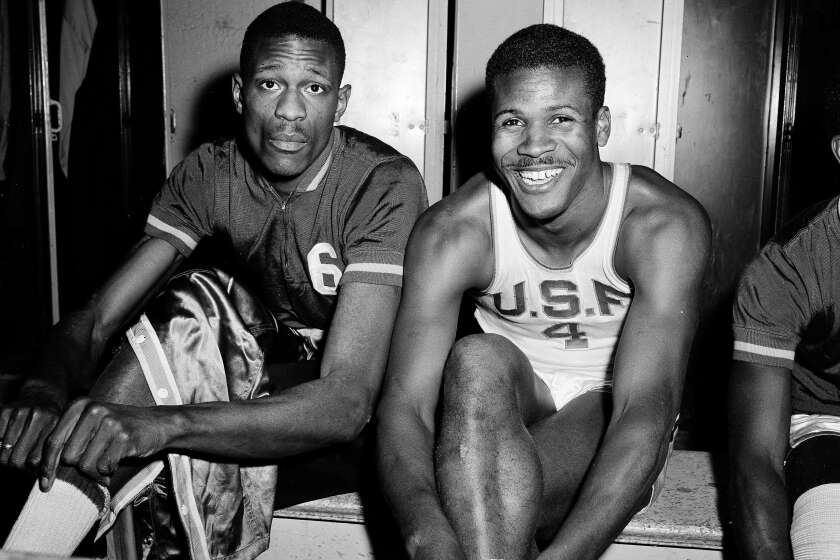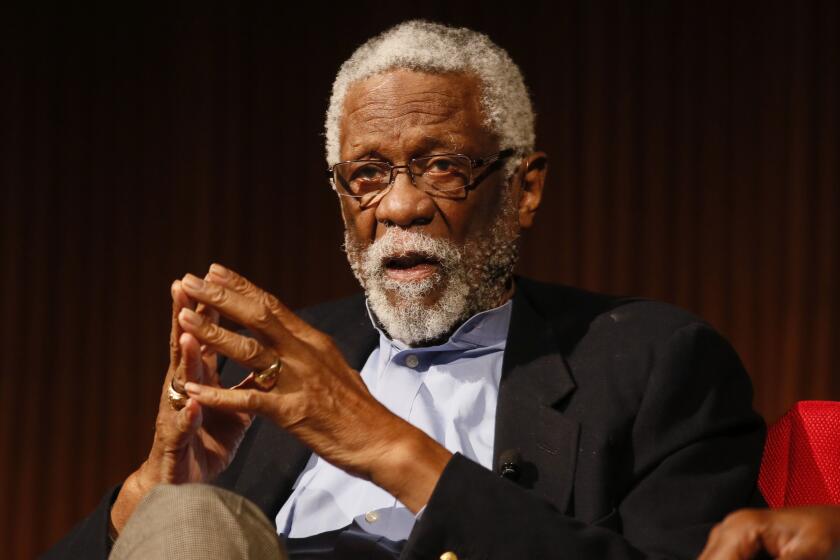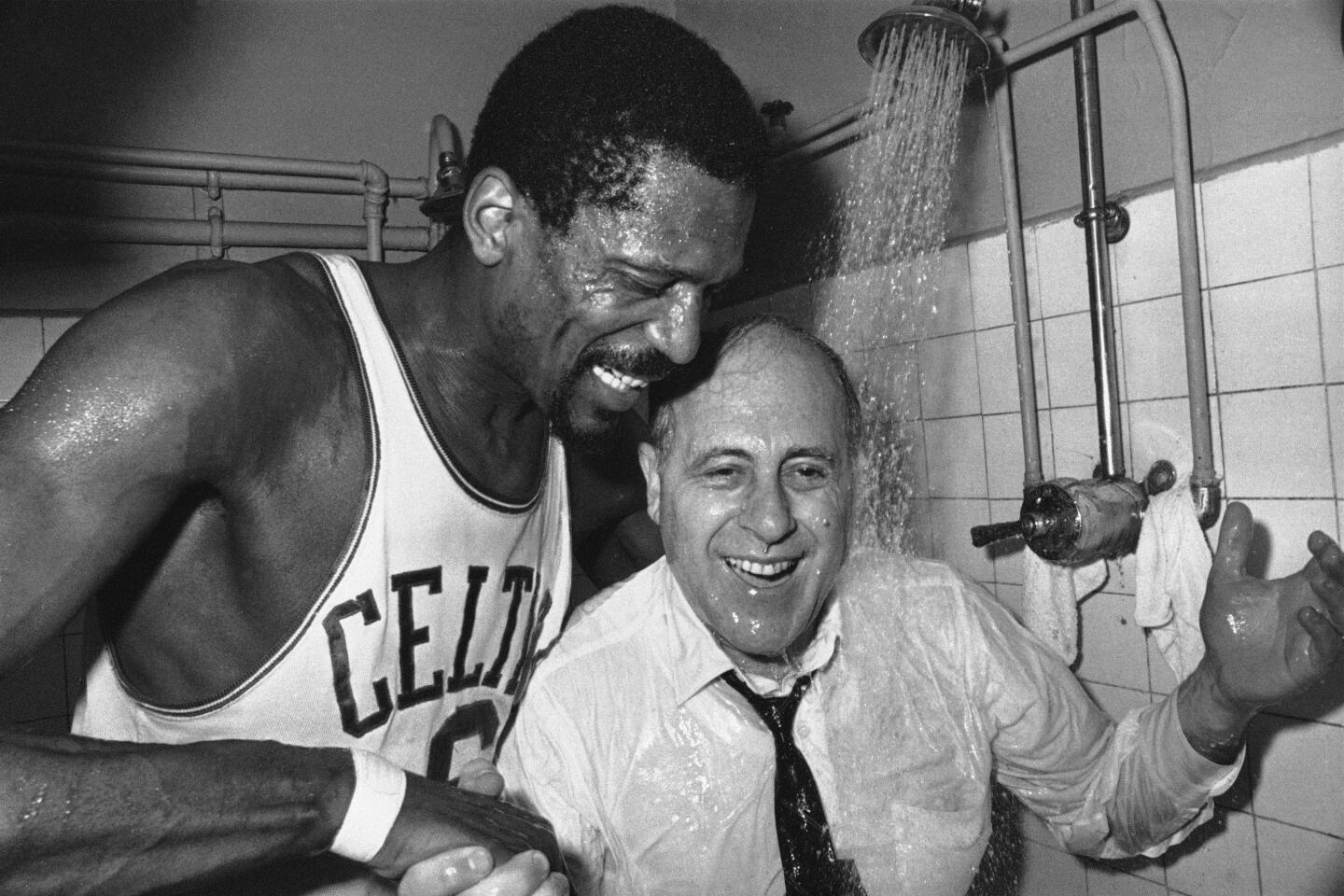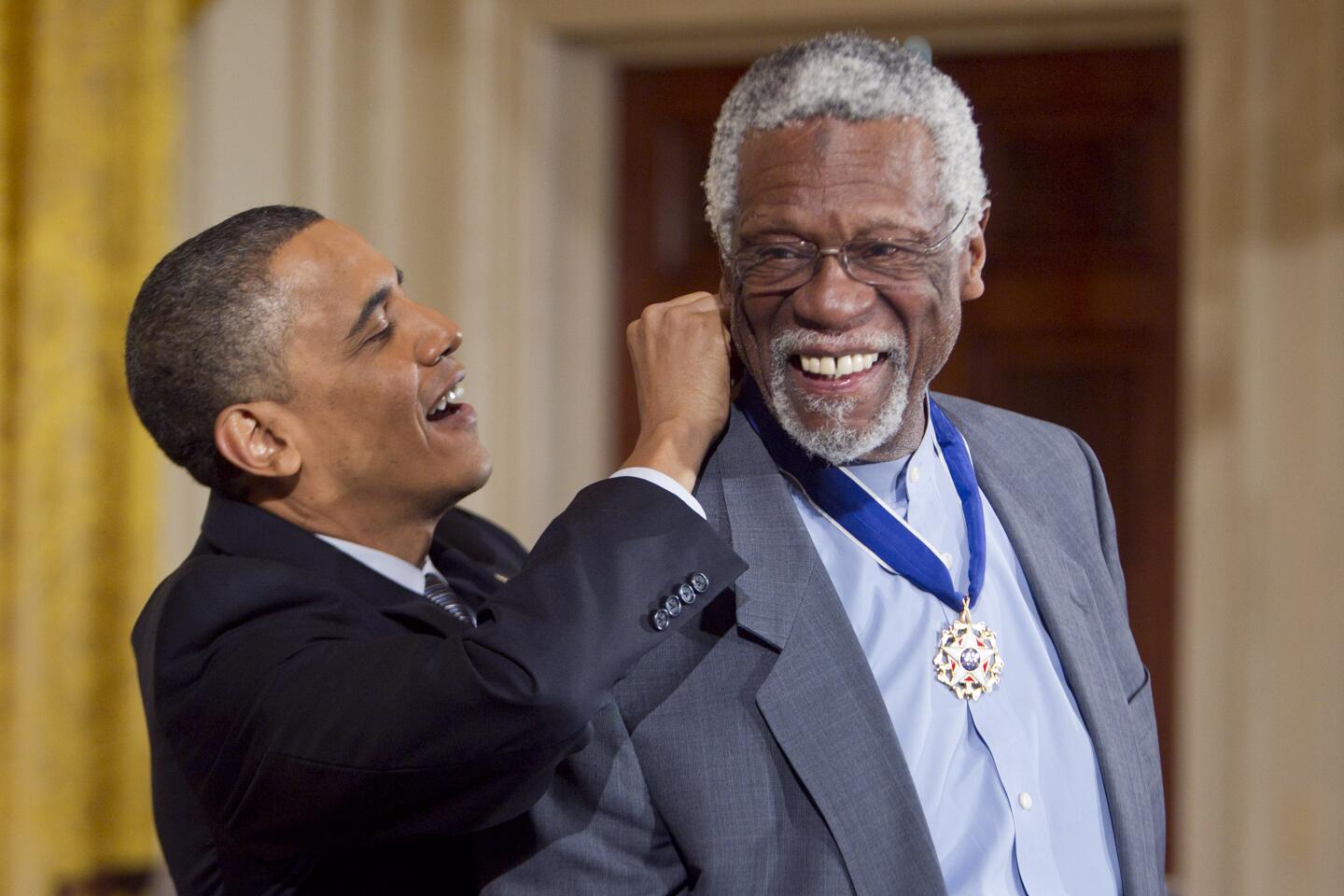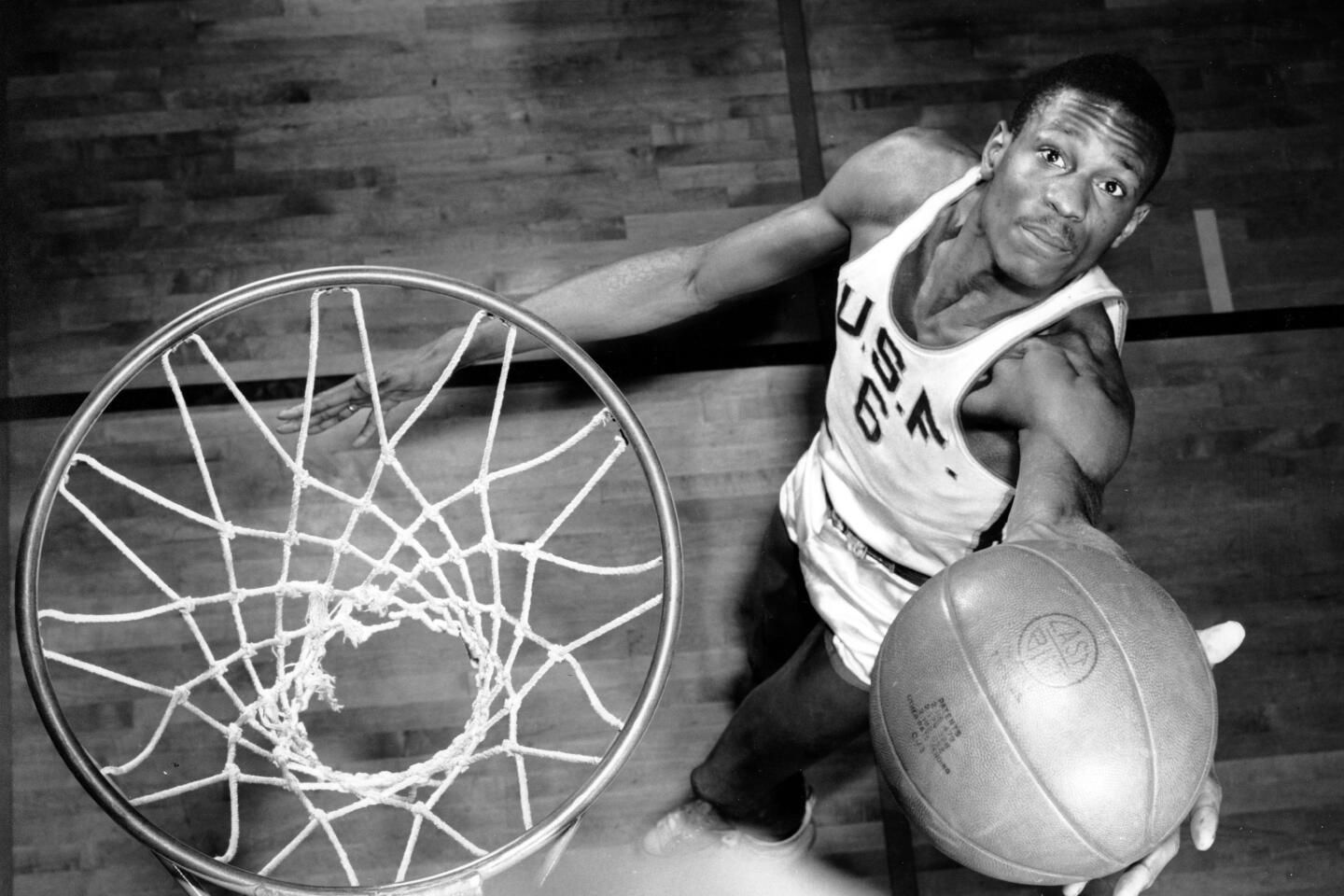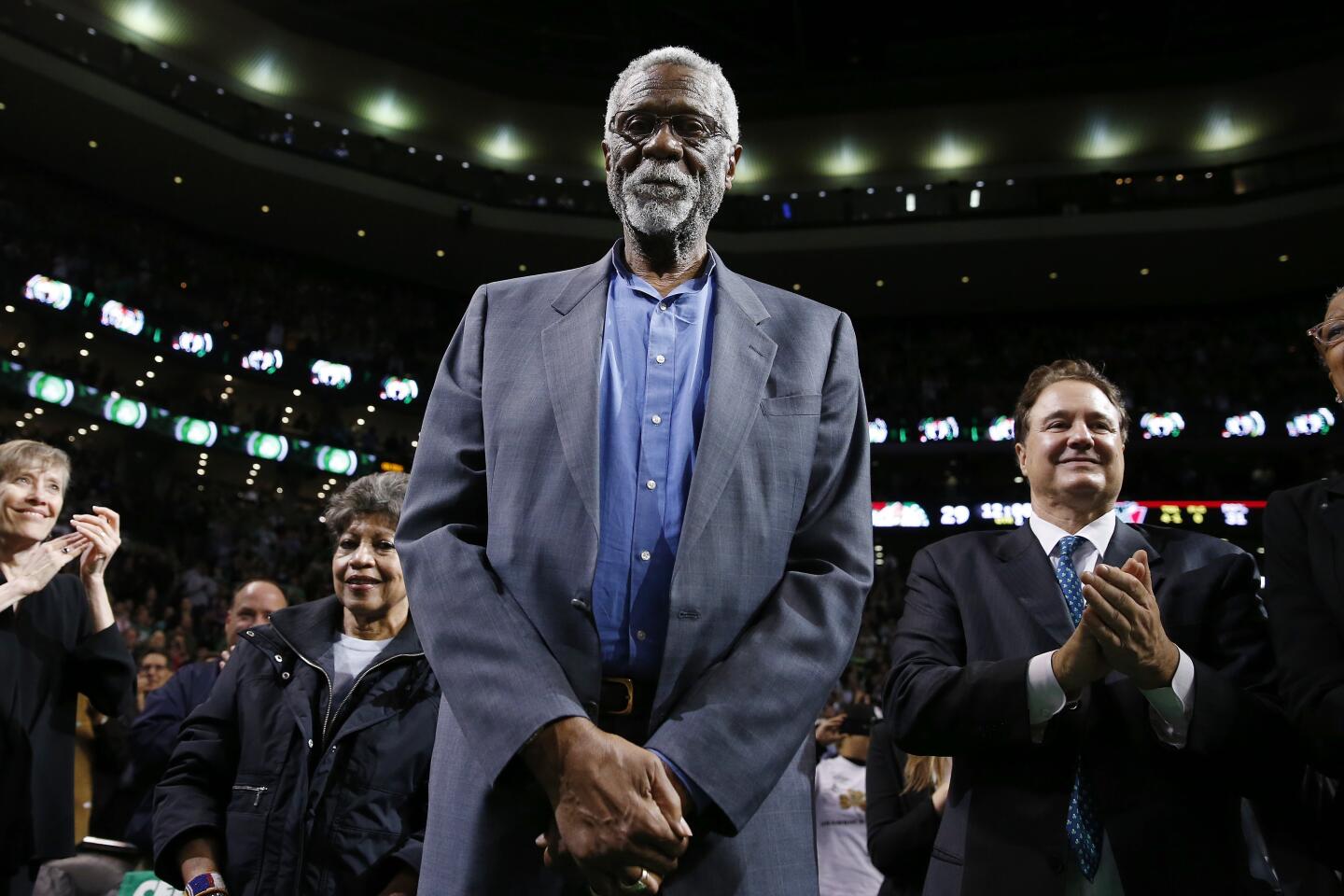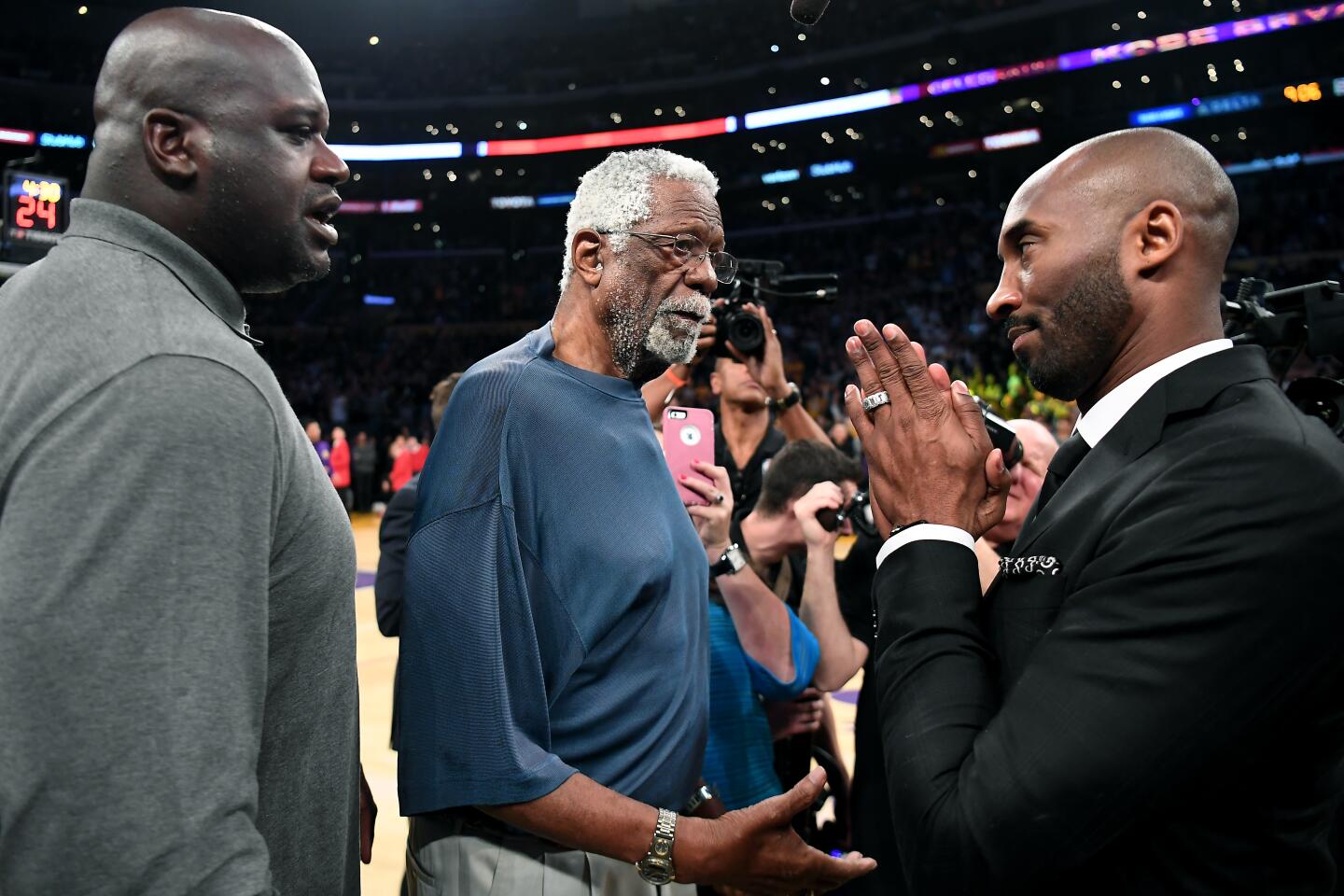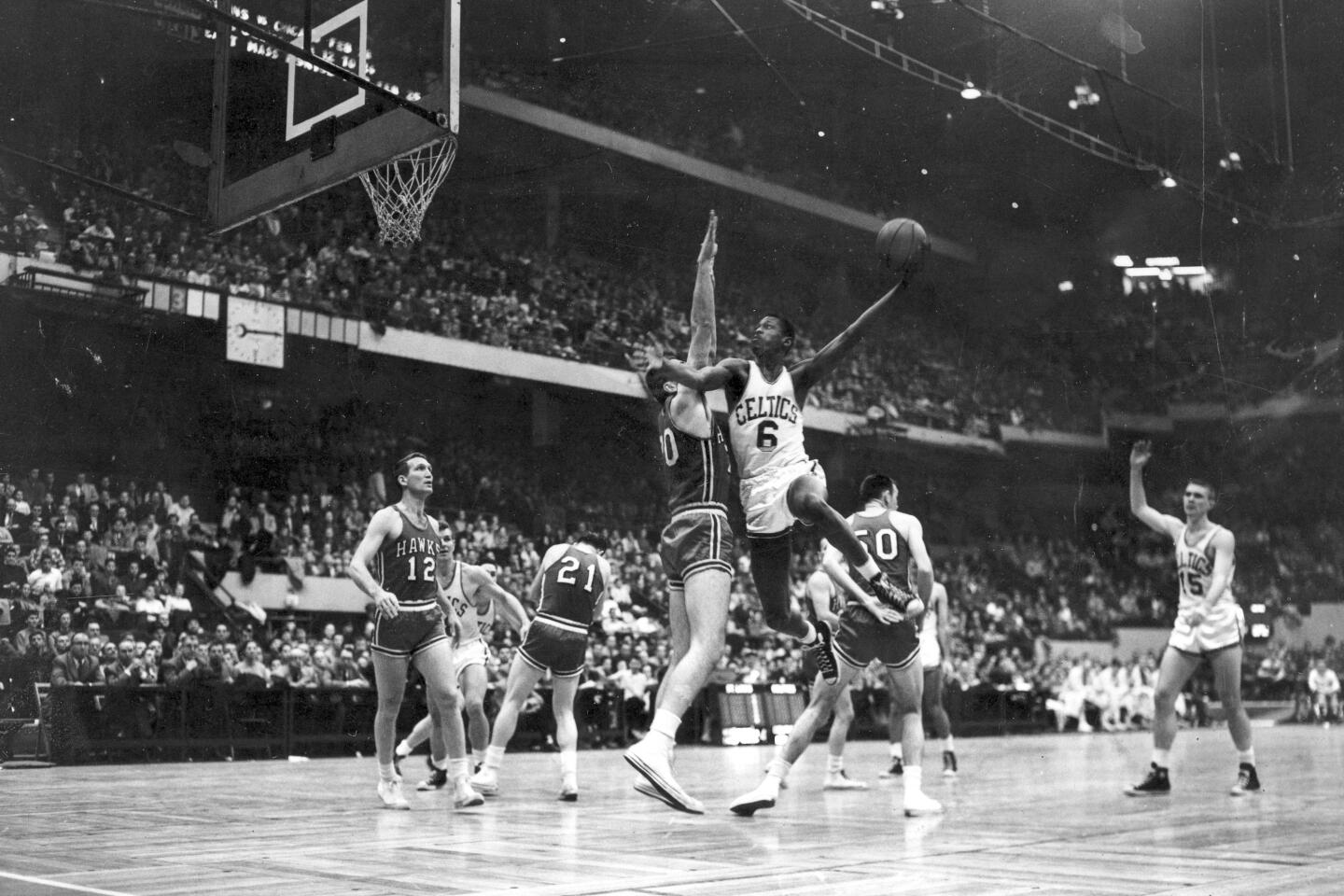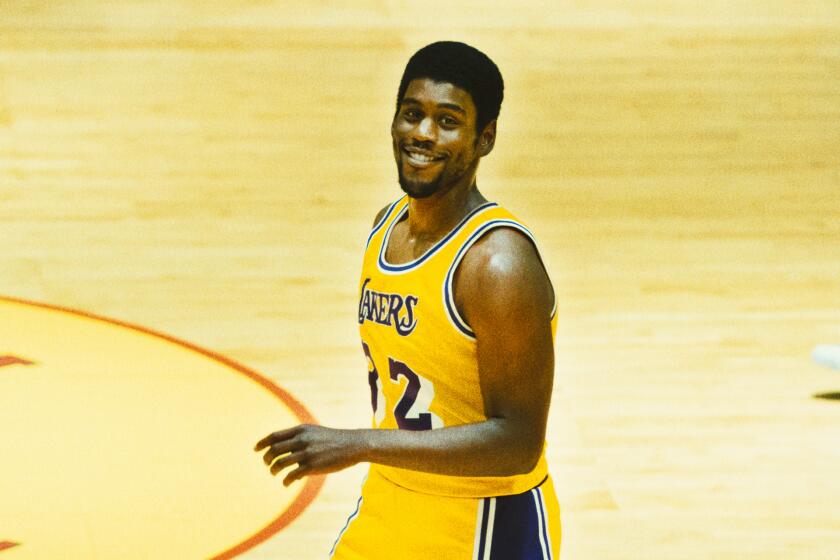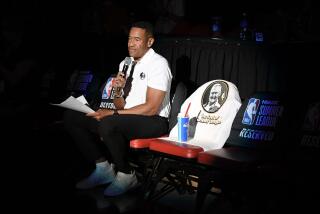Column: Jerry West remembers Bill Russell as a ‘difference maker’ on par with Jackie Robinson
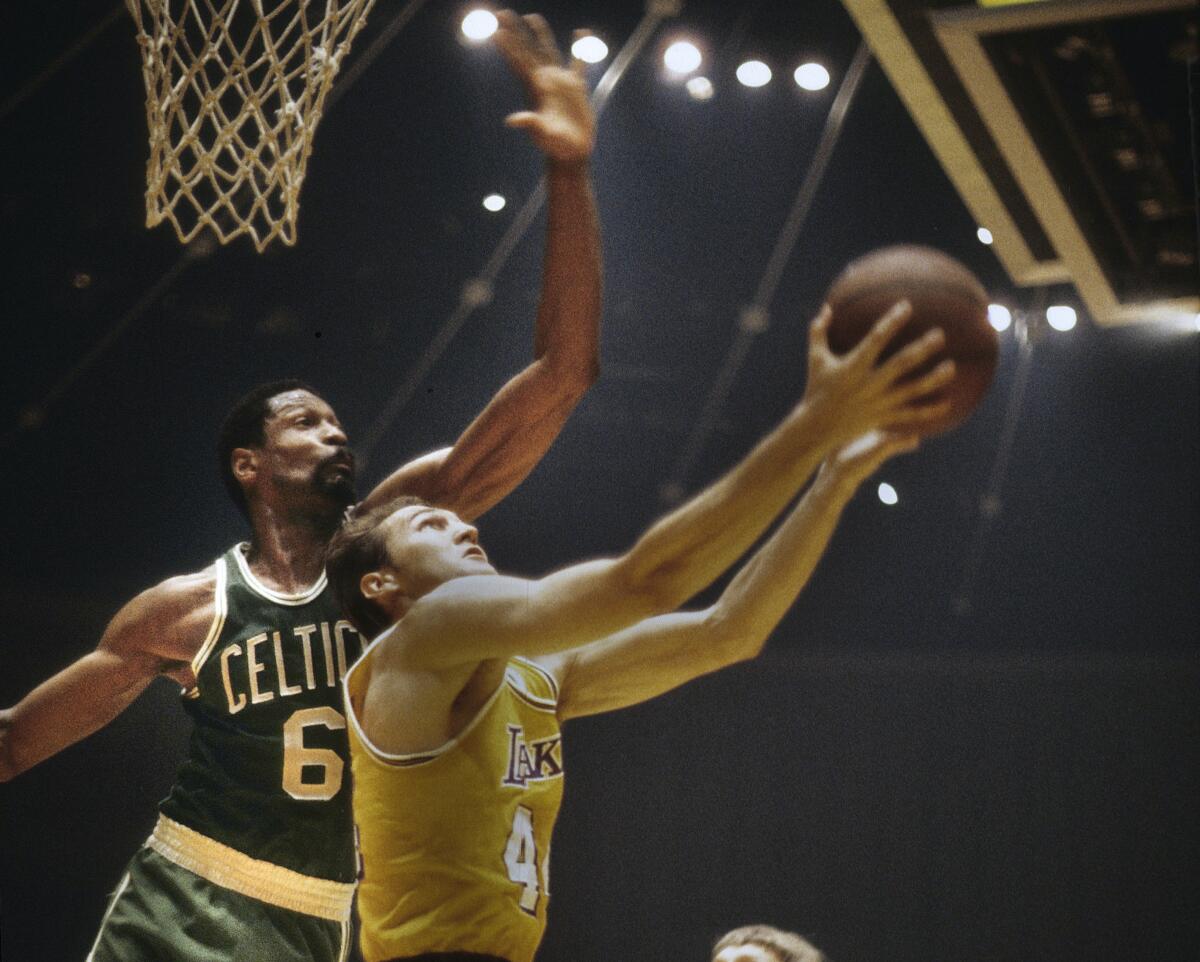
- Share via
Los Angeles booed him. Los Angeles jeered him. Los Angeles hated him.
But, goodness, how Los Angeles respected him.
As a player Bill Russell was the 6-foot-10 stab through the Lakers heart, leading the Boston Celtics to seven NBA Finals victories over the franchise, the biggest single nemesis in their history.
As a human being, though, he was far more impactful, spending his life fighting against racism, pushing for justice, engaging in battles far greater than a basketball game.
In his later years, during his occasional visits to what was then Staples Center, Russell would receive a most unique reaction when shown on the videoboard.
A standing ovation.
Bill Russell, professional basketball’s first Black superstar who reinvented the center position with the 1950s and ‘60s Boston Celtics, has died.
It was the only time a Boston Celtic would ever get cheered on the Lakers’ home court, but Bill Russell was that big, strong, and enduring.
His death Sunday at age 88 leaves the basketball world with a legacy that cannot be replaced.
“One of our darker days,” said Jerry West in a phone interview Sunday. “He was one of those unique people who comes along as a difference maker when a difference maker is needed.”
Most polls list Russell as the sixth best player in NBA history, but most polls are nuts, as nobody exerted greater influence, nobody overcame greater struggles, and nobody was a greater champion.
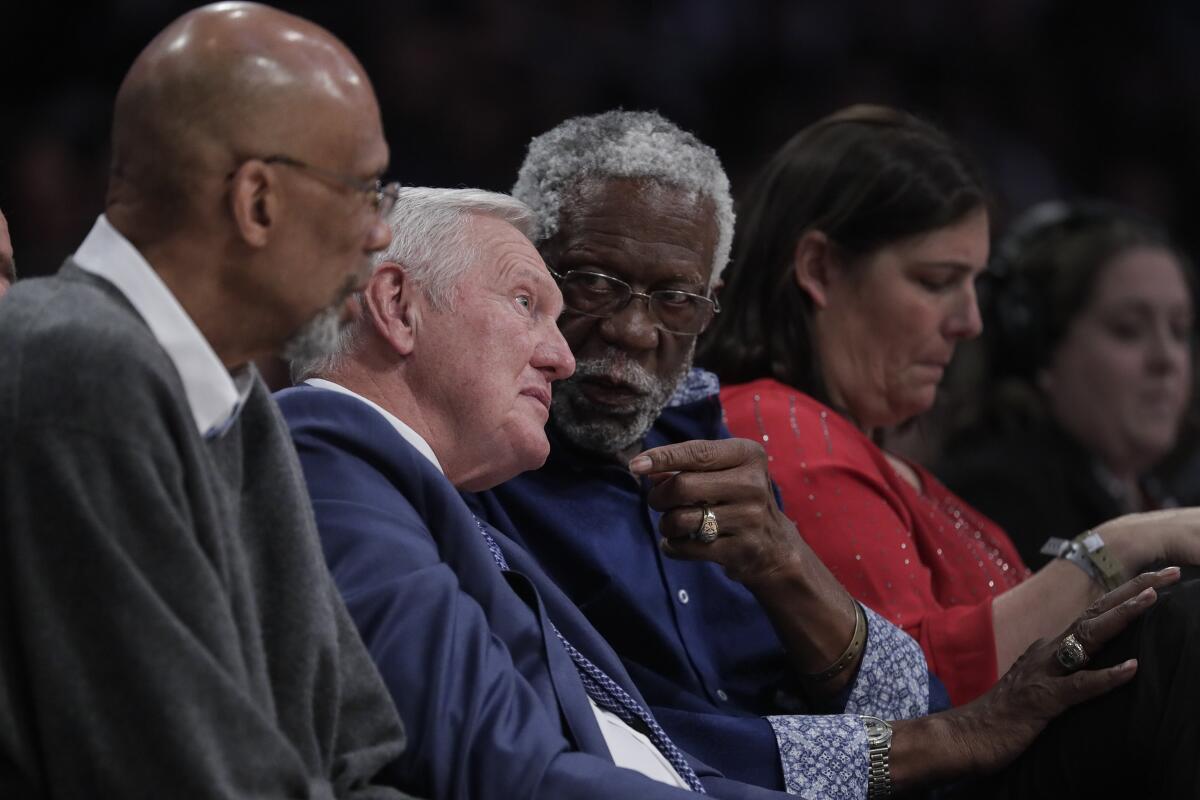
His 11 NBA titles makes him the most-decorated American athlete in major pro sports history. His countless blocked shots and his career average of 22.5 rebounds — think about that number! — makes him arguably the greatest defender in NBA history.
Far more important than all that was a social activism that will forever make him the basketball reflection of another pioneer.
“In every generation people make a difference not only with their play, but also with their persona,” said West. “Bill Russell and Jackie Robinson were in that same class.”
One might think that West and Russell would be sworn enemies considering Russell’s Celtics beat West’s Lakers in six of those Finals. One would be wrong.
“Bill was not my rival,” said West. “Bill was my friend.”
Boston Celtics legend and NBA Hall of Famer Bill Russell died on Sunday at the age of 88. A look at his life on and off the court in pictures.
The two men frequently sat together at NBA events, where they would share laughs and wisdom and respect.
“My friendship with him was such that it’s almost like I played with him instead of against him,” said West. “He went through so much and handled it all so quietly. I admired him so much as a human being.”
The Lakers legend still has a framed complimentary quote from Russell hanging in his bathroom, a statement about the highest honor being the admiration of one’s peers.
“I look at it every day, and it will hang there forever,” said West.
In leading the Celtics to those 11 championships in 13 seasons from 1957 to 1969, Russell became the NBA’s first Black superstar, but he paid the price.
He was never embraced like the Celtics’ white stars such as Bob Cousy and John Havlicek. His suburban Boston home was once ransacked and defaced with spray-painted racial slurs after he had been honored there.
“A poisoned atmosphere hangs over this city,” he once said. “It is an atmosphere of hatred, mistrust and ignorance.”
He refused to sign autographs because he didn’t want to be a role model for a society that didn’t accept him, and he once led his teammates in the boycotting of an exhibition game when their Kentucky hotel refused service to the Black players. So, the FBI opened a file on him in which he is called, “An arrogant Negro.”
Meet Red Auerbach, Larry Bird and the city of Boston: the villains of HBO’s “Winning Time” and real-life nemeses of the Los Angeles Lakers.
In 1966, while still playing, he was also named the Celtics coach, becoming the first Black coach of any team in any major U.S. sport. Yet police still regularly followed him as he drove through his Boston suburban neighborhood.
“You look at everything he went through in Boston as a Black man and you think, if he didn’t have the great success, how would he be treated?” said West.
Russell also felt like the Naismith Memorial Basketball Hall of Fame in Springfield, Mass., was a racist institution, so when he became the first Black player inducted in 1975, he didn’t show up for the ceremony.
“I don’t care if I ever go to Boston again,” he once said.
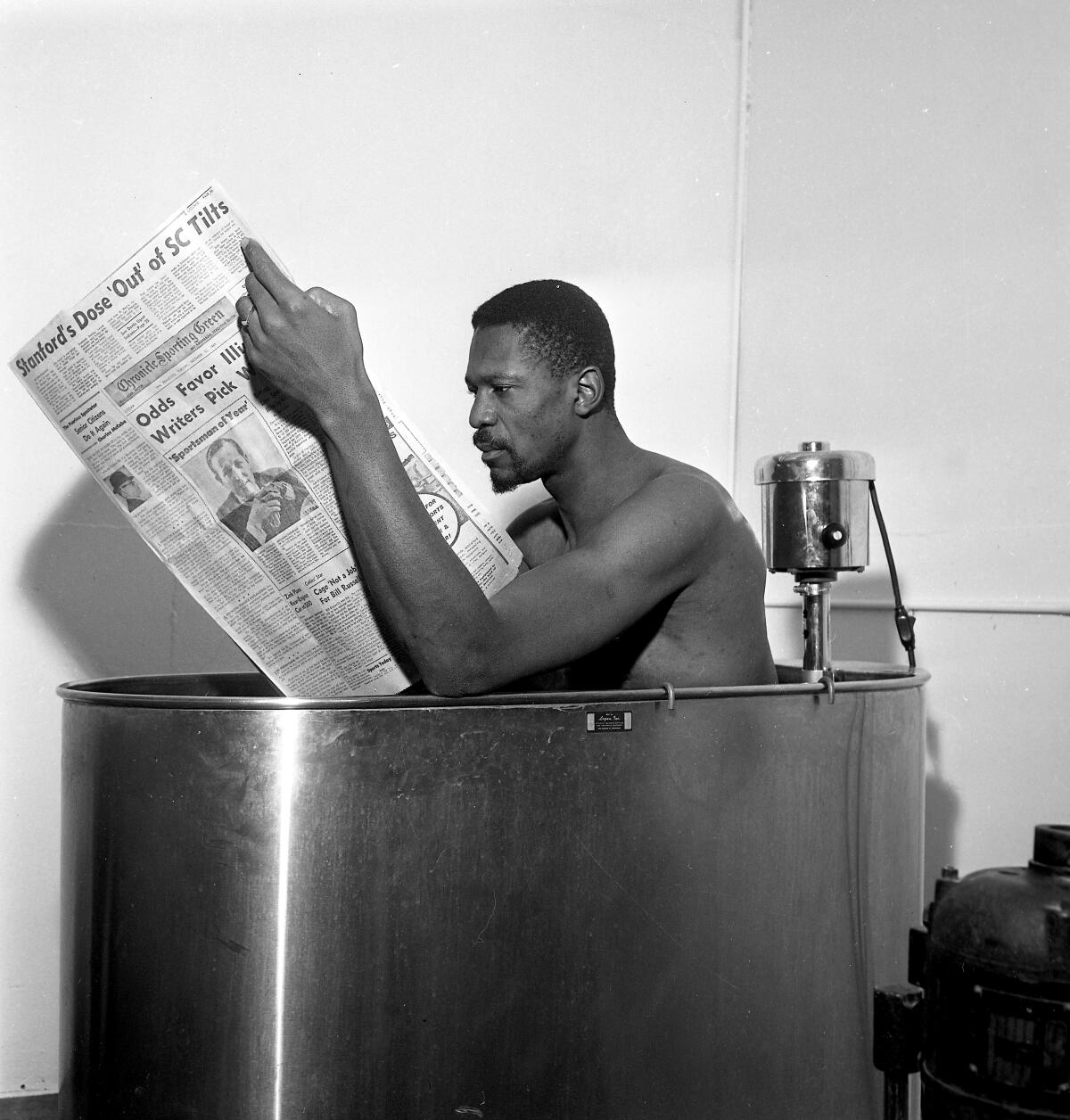
Yet he responded with more than anger, he responded with action. Long before LeBron James and Colin Kaepernick, Russell was risking his career to fight for social justice. He spoke out in support of Muhammad Ali’s stance against the draft, he held clinics in Mississippi in the wake of Medgar Evers’ assassination, and he was the first NBA player to conduct clinics in Africa.
“He was born for those moments,” said West. “In some respects, what he did off the court was more magnified than what he did on the court.”
His playing career ended with the Celtics’ 1969 Finals victory over the Lakers, but his impact on sport and society continued throughout the rest of his life, and in 2011 he was awarded the Presidential Medal of Freedom.
“But for all the winning, Bill’s understanding of the struggle is what illuminated his life,” said his family in a statement Sunday, later adding, “Bill called out injustice with an unforgiving candor that he intended would disrupt the status quo, and with a powerful example that, though never his humble intention, will forever inspire teamwork, selflessness and thoughtful change.”
Jerry West will remember a single image — Russell in the middle of one of their classic clashes.
Boston Celtics Hall of Famer Bill Russell died at age 88 on Sunday. Here is the Los Angeles Times’ coverage of Russell’s achievements on and off the court.
“There’s a photo where he is standing at midcourt, his hands over his hips, he looked very regal, looking over his fiefdom,” said West. “He had a real presence. I’ll never forget it.”
As the sports world continues his fight for justice and equality, Bill Russell is standing there still.
More to Read
Go beyond the scoreboard
Get the latest on L.A.'s teams in the daily Sports Report newsletter.
You may occasionally receive promotional content from the Los Angeles Times.

